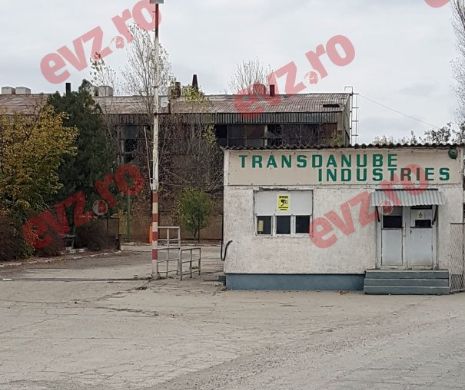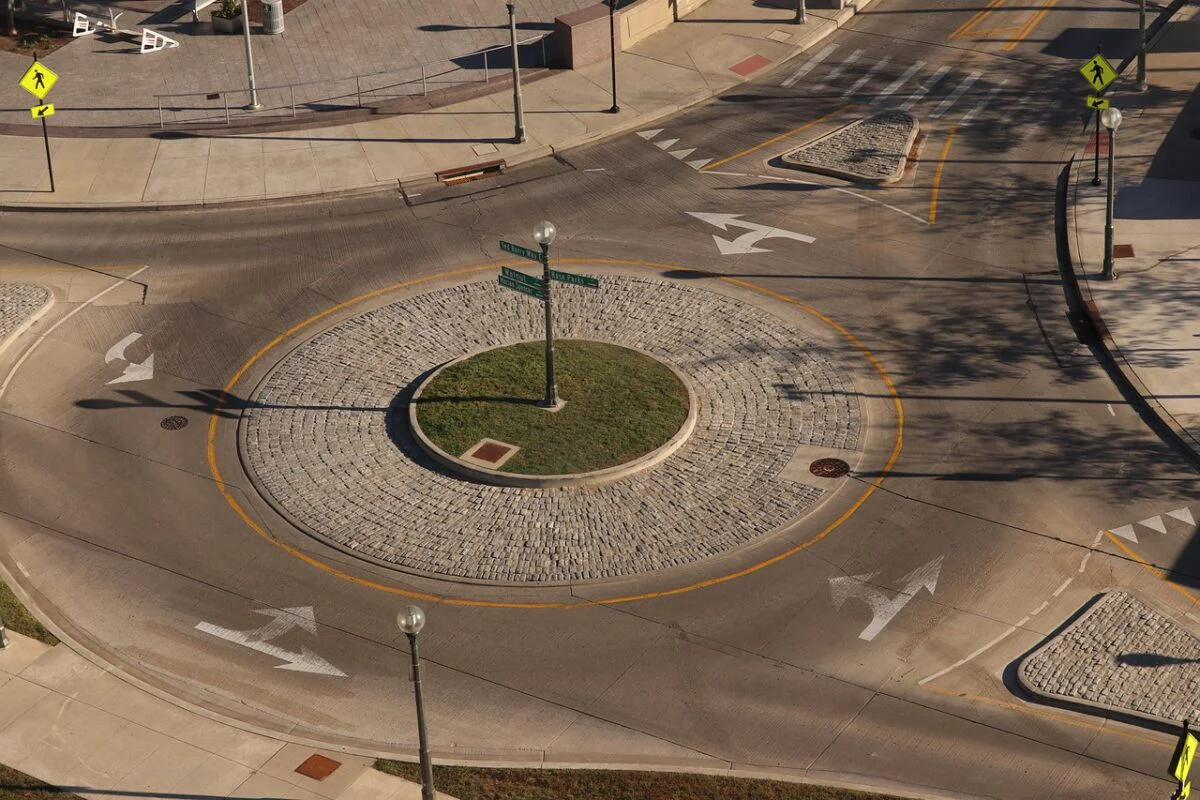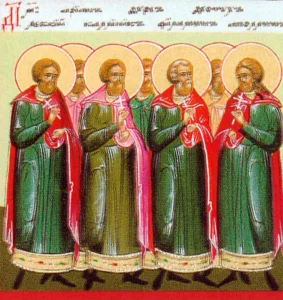The nightmare investment recipe of the future owner of Sidex
- Șerban Bu șcu
- 16 noiembrie 2018, 16:41

In Oltenita a lavender plantation emerged instead of the promised metallurgical plant. What surprises did the Gupta family prepare for Galati?
Olteniţa. Here, before 1989, over 7000 people worked on the two major industrial platforms of the city: the Turol Cast Iron Foundry and the Shipyard. Galati. Until the Revolution, approximately 31,000 people were working in Sidex, being the largest siderugic plant in Central and Eastern Europe. The three industrial platforms have crossed the transition somewhat similarly: a constant downturn. In the middle of 2000, both cities were targeted by two Indian investors, Lakshmi Nivas Mittal and the Gupta family, both of whom declared ambitious metallurgic investments. The Sidex has become Arcellor Mittal and still works with 6,500 employees, but what happens in Oltenita is a comedy of absurd.
We return in 2005. Then came for the first time in Oltenita the representatives of the Gupta family to claim that they want to invest in a metallurgical plant that will create 500 jobs. The amount they promised has left their local authorities with their mouths open. "They said they wanted to invest 150 million euros in that factory. You realize that we were immediately attracted to that, being a city where almost nothing is happening, "recalls Florian Cercel, former vice mayor of the city. At first the Indians seemed determined. In 2007 they bought the CTZ Olteniţa, the former thermal power station in the area, and, from AVAS, the industrial platform TUROL. In 2008 they bought 14 hectares of land from the local town hall, followed in 2011 by another 14 hectares. In 2012, the Gupta family purchased from AVAS also the shipyard in Oltenita, which was no longer operational, through Evergreen. They have thus reached almost 40 hectares of land on the Danube shore with the declared intent of building a metallurgical plant.
Oltenita, nothing to be envied
We are in 2018 and Oltenita at lunchtime seems an aging city. In the center of the city, the retirees sit in groups of 3-4 gossiping and small talking and it seems almost nobody is in a hurry to do something. Statistics show us the impression is correct. "Now there are about 3300 people in the city, most of them in services," explains Petre Tone, mayor of the city. We learn that out of the city's employees nearly 1,000 work at state institutions. Oltenita has a population of almost 24,000 people. What happens to the rest of the people? "Bucharest is just 50 kilometers away and people are commuting there", explains the city's chief. Soon we are touching Transdanube issue, the company under which the Gupta family has promised to build a metallurgical platform. What's going on with the project? "We still hope. They seemed serious and have started working on those lands", the mayor says optimisticly. We are surprised. We would find out if the construction of the plant started. Logically, the question arises: what investments have they made? "For two
years they have planted lavender and goji. They started to build a small factory of lavender oil, too. In the port they also built a grain platform. They have built some very beautiful offices in the port", explains the mayor. We do not know if he's serious or not, so we go to the Oltenita port area. The discrepancy between a metallurgical fabric and a lavender plantation seems very great to us.
From an investment of 200 million euros to goji and lavender
At the exit from Oltenita to the Danube we find the proof. The Indians unequivocally grow lavender and goji. A few locals are in the field and work. In the background, there are remnants of the former CTZ and the TUROL platform. It is a desolate image, detached from an absurd scenery. On the Danube, we also have proof that we are on the property of the Gupta family. On a barracks, at the entrance to the harbor and in the area of the agri- cultural plantations, it is cheaply written: Transdanube Industries. These are those who in 2005 promised to Olteniţa City Hall an investment of 150 million euros, which in the meantime increased to 200 million. For example, in the document entitled "Development Strategy for Calarasi County for 2014-2020", Transdanube Industries is ranked with the largest investment in the area. We also reach the famous offices of the Gupta family. No one is on the ground floor of the building. We walk unhurried through the hallway. After about one quarter of an hour there is a woman who asks us what we want. We find out that the employees are in the first floor offices. After a few minutes a young woman appears, she is a horticultural engineer. She tells us that for two years there is a growing organic farming business, but that nowadays they have not sold anything from lavender produced. We are a little puzzled: it was about building a metallurgical factory. "There are metalworkers in the offices here. So I suppose the idea did not end. More I do not know. I am employed from last year for these lavender and goji plantations, "says Alina Popescu. If we want more details, you must send your questions by mail. What mail? Transdanube does not have a functional site anymore. So the young woman leaves us her job mail, and she will send questions to her bosses. One of the questions is simple: how can you do organic farming on the decommissioned land of a former thermal plant where all kinds of fuel have been stored? We're still waiting for the answers. The situation is absurd: I sent a mail to a horticultural engineer to ask if the metallurgical engineers working in the same building are still planning to build the factory they promised.
Project to destroy Romanian metallurgic industry?
At Oltenita, the atmosphere is gray, but it is not tragic. Why? "Our industry died slowly but surely. We have gone into poverty and we have become accustomed to it. The promises of the Indians seemed incredible to us, and in the situation we were, we said we had nothing to lose. So we tried, "says Florian Cercel, former vice mayor of the city. But the problem arises when it comes to Galati: "I saw in the press that the same Indian wants to buy the former Sidex Galati. And he makes promises just like we received. But what happens if he does there the same as here? There are still thousands of people employed there and it will be a drama if he’s as “serious” as he was here. I find it very strange that no one intervenes. I'm beginning to think that the project is to destroy the Romanian metallurgy. Well, that's what he did to us in the city, nobody knows, neither the prosecutors, nor the SRI, no one. And now the
same man comes to buy in Galati. There is something unclean in the middle", concludes the former local elected, now retired.
How did the deal between ArcelorMittal and the Gupta family came to life?
ArcelorMittal has been forced by the European Commission to sell six factories in Europe to receive approval from the European Union competition authorities to acquire Italy's Ilva factory. Among the six factories is the former Sidex.
In addition to the various authorities subordinated to the European Commission, the transaction must also be approved by the CSAT. Since it is the largest steel plant at the eastern border of NATO, they must convert production to the benefit of army in the event of a military conflict. That is why we need to ensure the buyer's seriousness with regard to the economic health of the plant.
What the European Commissioner for Competition says
In other terms, because it is still a private transaction, the seller chooses the buyer and suggests it to the European and Romanian bodies to validate it according to criteria.
These were clearly stated by European Competition Commissioner Margrethe Vestager, who has recently declared that it will ensure that “the future buyer fulfills a number of predefined criteria designed to ensure they have adequate incentives to continue the operation of the plant. The buyer will have to demonstrate to the Commission that it has the capacity and incentives to exploit the plant on the long- term. In other words, selling the plant to a buyer who would consider closing it would not be an acceptable solution", said Vestager.
We are looking at the transaction with respect to the buyer's seriousness because there are 6,500 jobs at stake as well as the economic well-being of a city for which this plant, that had 31,000 employees in 1999, is vital.
How the Galati investor explains the situation in Oltenita
Bold statements by Gupta's representative regarding the investments of more than 300 million in the modernization of this plant, are strickingly similar with Oltenita case, which compels us to try and understand the seriousness and reputation of the buyer, its financial soundness, management experience, intentions regarding the future of the factory to guarantee the jobs.
Asked in the press conference about the swindle in Oltenita, Mr. Gupta passes all responsibility to his brother: "(Oltenita n.a.) was my brother's business. I'm not very familiar with this business ... Actually, tonight I'll meet my brother after 10 years. "
This hilarious yet shocking statement, coming from a person that wants to be perceived as a strategic investor, was covered by Nicoleta Rogojina in the online edition of the Galati Monitor on Thursday November 8, 2018, and it says quite a lot about the seriousness of this family.
Consternation comes from reports of local and international media, where the activity of various firms belonging to Gupta family, is inseparably linked to the listing of the three brothers Sanjeev, Alok and Raj.
For example, Ziarul Financiar wrote in 2010 "Transdanube Industries, a company that is owned by the Cobrom Investments Limited offshore, registered in Cyprus by the Indian family Gupta (brothers Raj, Sanjeev and Alok)", an information found in other dozens of articles in the press. Has Sanjeev forgotten he’s brother is a partner in the business?
Company website: nothing more about the financial situation
We tried to remind Mr. Gupta of family ties by searching information about his group on the company's website. Unfortunately, on www.gfgalliance.com, we have mostly found advertising for the family and almost nothing related to annual financial reports or details of stock holdings.
The lack of corporate transparency may not please the European Commission, which has a saying in choosing the buyer.
Thrown into a shopping frenzy on 4 continents, in the last few years, the GFG Alliance has grown much, of course, on debt, and the media and financial world are starting to ask if Gupta wasn’t too ambitious.
"I should be welcomed with open arms, not with questions. I do not take money from anyone. " And yet...
It is the kind of man who tries to dominate, to hypnotize and to impose through mere presence, without having to prove anything. It is exactly the profile of the successful sales person who comes and saves the situation. His words in an interview for an English publication in India: "The point is that we should be welcomed with open arms, not with questions. I do not get money from anyone. I use the family money. Where are you from? Where do you get the money from? What sorts of questions are those? ".
Promises the money of others
And yet the reality is that they are legitimate questions, and the latest developments show Gupta uses the money of others rather than those of their own family. And how he got funding starts to raise serious suspicions in the western world.
The 2.8 billion dollars borrowed come from the Swiss GAM investment fund, which recently makes virtually the first steps toward liquidation, to the overwhelming surprise of many. But the International Financial Times edition reports theat will be pretty hard for GAM to close those positions. If it was easy for him to sell certain "good" bonds, it would probably be very difficult for him to get rid of the remaining ones.
Because we talk about debts of some obscure businesses, even bonds that have only promises and projects behind. Promises and projects. Do you remember? Just like in Oltenita.
And the comparison is not shifted because most of these hard or impossible titles were generated by the Gupta group.
The crisis was triggered by an anonymous employee who announced leadership and capital market control bodies that the practices of investment manager Tim Haywood are not in line with the regulations.
GAM's internal investigation pointed out that Haywood did not have enough diligence in checking certain investments, signed contracts alone, even when he needed two signatures, had not shared internally important analysis papers, violated the gift policy and protocol because he did not ask for prior approvals, he used his personal email for work and more.
Harmful practices
As Evening Standard notes on Sept. 25, 2018, "these harmful practices are linked to private debt, very difficult to sell, issued by a company called the GFG Alliance, controlled by the steel tycoon Sanjeev Gupta, according to Bloomberg."
The concern is also supported by the Financial Times, which notes a few days ago on November 9, 2018 that "there are questions how (Gupta n.a.) has managed to fund its shopping spree. One of the sources of funding, according to public documents, was GAM, which held a significant share of at least $ 2.8 billion in funding for Mr. Gupta's companies. "
Due to this situation, GAM shares have collapsed by more than 66% and black clouds are announced on the horizon as long as the bad news of the ongoing investigation runs.
For us, the question remains: if this relatively "friendly" funding source has evaporated, how will the classical financiers treat them? For a company with a debt ratio of more than 10 times, access to finance becomes rather tedious. The alternative is to head to less classical sources, where you have to accept prohibitive interest, which negatively affects the good state of the companies and automatically leads to lack of financing for investments, for capital expenditures, which leads to layoffs, downsizing activity.
~Are promises made in Galati for real? How can authorities be assured that Gupta is a serious buyer?
For answers, we have addressed the European Commission, which we have sent some common sense questions that have emerged as concerns in our journalistic analysis and investigation.
Questions to European Commissioners
Given the history of Oltenita, where the Gupta family has not honored its grandiose public promises to invest 200 million euros and create 500 jobs in the construction of "the most modern metallurgical compound", how can the European Commission ensure that the promises in Galati are real this time?
We have attempted to corroborate Gupta's statements of intentions with financial reality, but we have not found any financial report and no organizational chart of the group from direct sources. Is it possible for European bodies to force the buyer to corporate transparency, given the strategic importance of this acquisition?
How can the European Commission safeguard the soundness of the investment, considering that the Gupta Group has a very high level of indebtedness and access to finance seems problematic?
How can the European Commission guarantee the buyer's ability to ensure uninterrupted production in case of deteriorating market conditions?
Given the recent acquisitions, does the European Commission considers that the Gupta Group is sufficiently assembled as financial strength, human and logistic resources to carry out a large-scale investment in Galati?
Can the European Commission validate Gupta's ability to deliver the investment plan to increase production by 50% and restart a furnace? If this plan is not successful, will the plant close?








